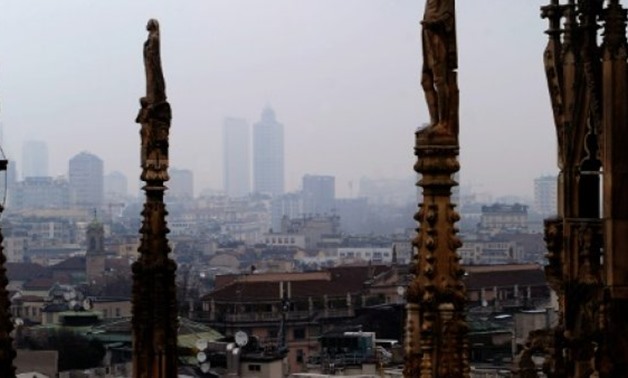
© AFP / by Cédric SIMON | Milan is one of the favourites to be chosen as the new host city for the European Medicines Agency
BRUSSELS - 20 November 2017: The fight for some of the most prized spoils of Brexit comes to a climax on Monday when 27 EU states pick the new host cities for two London-based regulatory agencies.
In a process only half-jokingly compared to the Eurovision Song Contest, ministers will vote on where to relocate the European Medicines Agency and European Banking Authority.
British bookmaker Ladbrokes makes Bratislava, Milan and Amsterdam favourites to host the EMA, with Frankfurt, Vienna and Dublin lead the running for the EBA, although officials warned the secret ballot could throw up an unpredictable result.
Governments have been jostling to win the backing of other countries with "hot bargaining" behind the scenes for two agencies that promise both prestige and prosperity, a diplomatic source told AFP.
In total there are 19 candidates to be the new home of the EMA, one of the world's most powerful drugs watchdogs, which employs 900 pharmaceutical experts, biologists and doctors from every corner of Europe.
There is a smaller batch of eight bidders for the EBA, the banking overseer with 159 staff. The EBA is perhaps best known for its regular stress tests on the EU's financial sector in the wake of the global financial crisis.
Both are currently based in London's Docklands business district but must move when Britain leaves the bloc in March 2019 because EU agencies are not allowed to be based outside the union.
- 'Game theory' -
Member states brought out all the stops to extol the merits of their candidate cities, producing glossy brochures and videos and offering a host of perks.
The Irish government has said it is willing to contribute 78 million euros over 10 years to cover costs, while Vienna promised a children's nursery, and Milan threw in access to a gym.
Italy was even forced to deny news reports that it would increase its military contingents to the Baltic countries as a bargaining chip to promote Milan's candidacy.
In an unusually complex procedure -- even for the EU -- each country will have six points to distribute for each agency, including three to give to their first choice, two to their second and one to their third.
If necessary, the process can go as long as three rounds, each with different rules and scheduled breaks during which ministers can consult their capitals.
"Of course, many countries will vote tactically," a diplomatic source told AFP, adding that his country had resorted to studying "game theory" to be ready.
EU diplomats have compared the process to the annual Eurovision Song Contest, whose nail-biting televised voting sequence is one of the most watched TV moments in Europe, known for its come-from-behind surprises and mixture of backscratching and backstabbing.
- Staff worries -
The European Commission, the EU's executive arm, delivered an evaluation of the applications in September based on a range of criteria from transport links, to job prospects for spouses and schools.
But the commission was careful not to formulate a preference, and member states are under no obligation to take that assessment into account in Monday's vote.
"The criteria will not only be about the intrinsic qualities of a particular candidacy," said France's EU Affairs Minister Nathalie Loiseau in an interview with the French daily La Croix.
But the staff of the agencies in question, already being forced to up sticks from London, are reportedly nervous about any surprise victories.
The drugs agency was warned in an internal report that the choice of certain cities would result in "a retention rate of personnel well below 30 percent".
No cities were named, but according to leaks in the press, Bratislava, Warsaw, Bucharest and Sofia stood out as the least popular.


Comments
Leave a Comment